How to Use the Correct Tense in OET Exams?
9 min read
Updated On
-
Copy link
Boost your grammar accuracy and communicate confidently in clinical contexts while getting familiar with how to use the correct tense in OET exams. Learn to use it in patient referrals, case notes, and role plays for the writing and speaking sections.
Table of Contents

Limited-Time Offer : Access a FREE 10-Day IELTS Study Plan!
It is vital to know how to use the correct tense in OET Exams since grammar is an essential tool of the English language. In order to pass any language evaluation test successfully, you must have a firm grasp of the rules and usage of grammar in English.
The right tense would contribute clarity and exactness in referral letters while avoiding any confusion, as patient case summaries undergo verb changes to convey messages. In clinical communication, a tense reflects the timeline of events when one conveys medical information. Therefore, let’s look at how to use the correct tense in the OET Exam.
Preparing to take the OET? Sign up for a FREE OET Demo Class now!
Why Learn How to Use the Correct Tense in OET Exams?
As you prepare for the OET exam, you will have to use the correct form of tenses in the writing and speaking modules. In this way, you will showcase your ability to use the appropriate language in context, logical flow or sequence of events, and improve on your professional documentation standards. Below is an overview which would help you understand why you must learn the grammar topic on tenses.
- During the OET Writing sub-test, you would need to attempt writing a referral, discharge, or transfer letter based on patient case notes. In this case, you need to use different tenses based on the timing.
- You can use simple past for an action already done and present perfect for past events that are important for the present. On the other hand, use simple present to indicate present conditions or general facts and future forms to describe future plans or appointments.
- In the OET Speaking test, you will perform role plays which might involve the communication of a healthcare professional with a patient or a caregiver.
- Tenses which you need to use in speaking would include simple present & present continuous when symptoms or actions are current. Use the simple past tense when talking about the patient's history, while the future tense would be best for giving advice or plans.
Check out the Best Occupational English Test (OET) For 2025 now and take a step closer towards success.
What are the Different Forms of Tenses?
In the English language, verbs can take the form of three tenses – the past tense, the present tense and the future tense. Things that have already occurred are referred to as having occurred in the past, for example, earlier today, yesterday, last week, or three years ago. The present tense is employed to talk about things that are ongoing or that are currently happening now. The future tense refers to events that have not yet occurred, such as later tonight, in the upcoming weeks, next year, or in three years.
To put it simply, consider the following example.
|
Past Tense: We had dinner last night. Present Tense: We have dinner at 9 p.m. Future Tense: We will have dinner later in the evening. |
-
The same activity is described, and the form of the verb changes according to the tense.
|
The verb here is Have. The Past Tense of Have is Had. The Present Tense of having is Have. Future Tense of Have is Will Have. |
-
Thus, if you are describing an event in the past, such as a party, all verbs will be in the past tense. For example:
|
My parents threw me a birthday party on Wednesday. They invite all my classmates. |
-
Here, the verb ‘invite’ is in the Present Tense. Thus, it is an incorrect tense usage and must be changed to the Past Tense. So the correct full sentence will be as follows:
|
My parents threw me a birthday party on Wednesday. They invited all my classmates. |
-
You may occasionally need to switch around the tenses in your writing to clarify concepts involving various time periods. For example,
|
I learned how to fish last year. Now I often go fishing with my friends. |
-
Here, the author describes a recent past occurrence as well as a typical present-day occurrence. This shift in tenses is appropriate because it enables the author to convey two thoughts that occur at various points in time. You may use signal words to indicate a shift in tenses. In the English language, signal words are often used to indicate to the reader that the time period has changed.
|
The phrasal verb “last year” is used to describe an event that took place in the past. Then, use the word “now” to describe an event that is currently occurring in the following statement. |
This aids in avoiding confusion for the reader. The tense of an action verb will tell us when the action has been completed. Learning the many verb tenses and when to utilize each one is necessary for understanding English grammar and writing.
Get insights into A Comprehensive Guide to OET for Nurses for your Success.
How to Use the Correct Tense in OET Exams?
From the different Types of Letters in OET, referral and discharge letters will require you to convey information more clearly by using the appropriate tenses. On the other hand, choosing the wrong tense could leave readers perplexed and may lead to serious misunderstandings in the medical field. Let’s look at the times and also go over the tenses you are most likely to use in the OET.
1. Present Simple Tense
Use the present simple to record basic information like the patient’s name, age, and status at the beginning of your referral letter or in case notes. When we are confident that the circumstances won’t change, we employ the present simple.
|
For example:
|
2. Past Simple Tense
You’ll probably need to utilise the simple past once you start talking about the patient’s background and history. For activities that have already been finished, we would need to use the past simple as you want to report discrete symptoms, appointments, etc., in the healthcare field.
You can come across phrases with time stamps like “two days ago” or “last month” in the OET writing notes. For such sentences, the past simple is typically used.
|
For example:
|
3. Present Perfect and Present Perfect Continuous tense
Finally, you might need to relate the patient’s current state to their previous one while discussing it. If a situation hasn’t changed or is still extant, the present perfect might be used to describe it. We frequently relate the past to the present by using the present perfect to describe symptoms and illnesses. The time indicators “since” and “for” are acceptable with present perfect sentences.
|
For example:
|
If we wish to emphasise that an activity is ongoing or repeated, we can also employ the present perfect continuous.
|
For example:
|
Strategies to Learn How to Use the Correct Tense in OET Exams
As you dive into the grammar topic on ‘tenses’, you would need to incorporate a few strategies so that you can prepare for the OET exam better. Remember that these tips would help you on a regular basis to elevate your preparation. The following are some of the tricks which would enhance your knowledge while helping you note the areas of improvement so that you can excel in the exam.
- It is crucial to read the case notes carefully in the writing section in the OET Letters. This is because there would be time references given which would determine the choice of tense. Always focus on these time indicators during the preparation time of 5 minutes.
- Try to identify the purpose of communication so that you can determine the tense. If it is narrating a past medical history, it would be in the past but if it is about diagnosing or checking about the current status of the patient, then it is the present tense.
- Practice common verbs in each tense. The core verbs in medical writing are words like suffer, experience, diagnose, advise and recommend. It is suggested to use these words as you practice the writing and speaking modules. Try to make sentences in different tenses with these verbs to achieve fluency.
- Focus on time markers like "recently," "currently," "last few months," etc., can assist you in making the right tense choice. This would give you a clue as to which tense you must present your answer in.
- Record yourself speaking and then listen back to the recording to reflect on your responses. With consistent practice, you can note the areas where you find difficulty in using the correct form of tenses.
- Also, listen to native healthcare dialogues to create a word list which would relate to the respective tenses.
Book the OET Spotlight Course-20 sessions today and level up your preparation!
Exercises to Learn How to Use the Correct Tense in OET Exams
Now that you have looked at the appropriate tenses and its forms, let’s dive into the exercises which will level up your preparation. Even though the answers are provided, it is recommended to attempt the questions yourself first and then look at the sample answers.
Exercise 1: Use the correct form of the verbs given in brackets to complete the sentences.
1 She has been _________ (take) a dose of medicine for two weeks.
2 The doctor has _________ (advise) the patient to take a daily walk.
3 The patient must _______ (eat) at regular intervals.
4 The patient has ________ (complete) the treatment yesterday.
5 The meds are ________ (work) well.
6 The patient will be _______ (discharge) tomorrow.
7 You will have to ______ (pay) for this medication out of pocket.
8 The patient will be _______ (move) to the general ward.
9 The treatment is ______ (progress) well.
10 The doctor is ________ (examine) her now.
Exercise 2: Choose the appropriate tense for each of the following sentences and modify if necessary.
1 The patient has received their medication yesterday.
2 Miss Taylor suffered a stroke three years ago.
3 The patient is being allergic to penicillin.
4 The patient injured her right hand on Thursday.
5 Her condition has been steadily improving.
6 The accident has happened in the early morning.
7 The patient’s left ankle is painful for five days.
8 The night nurse carried out the initial assessment.
9 The patient is informed about the risks before the surgery.
10 Mr Johnson was concerned about the correct use of the new medication.
Answer Key for the Exercises to Learn How to Use the Correct Tense in OET Exams
Did you get all the answers? Let’s check out the answer key to the exercises now so that you can compare yours against the right ones.
Exercise 1 :
|
1. Taking |
6. Discharged |
|
2. Advised |
7. Pay |
|
3. Eat |
8. Moved |
|
4. Completed |
9. Progressing |
|
5. Working |
10. Examining |
Exercise 2 :
|
1. The patient received their medication yesterday. |
6. The accident happened in the early morning. |
|
2. Correct |
7. The patient’s left ankle has been painful for five days. |
|
3. The patient is allergic to penicillin. |
8. Correct |
|
4. Correct |
9. The patient was informed about the risks before the surgery. |
|
5. Correct |
10. Correct |
Get Expert help by joining the OET Supreme Course-30 and get your desired scores!
Remember that accuracy in using the correct form of tenses is crucial. The professional communication reflects the demands of the actual medical world, so the correct tense usage is necessary to ensure a very clear expression. Observing the exact time frame of an event, regular practice, and reviewing your writing as well as speaking sections for these difficulties will help increase your score and confidence for the exam day.
Also Check:
Other OET Exam Related Articles

Start Preparing for IELTS: Get Your 10-Day Study Plan Today!
Explore other IELTS Articles
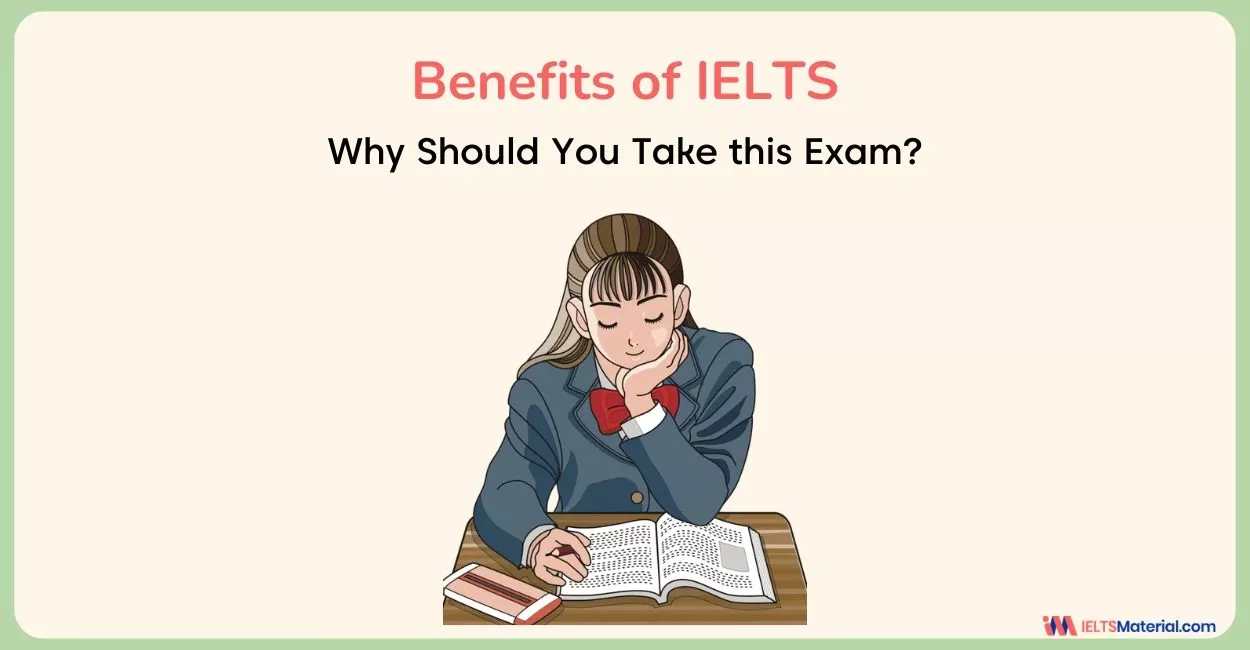
Kasturika Samanta
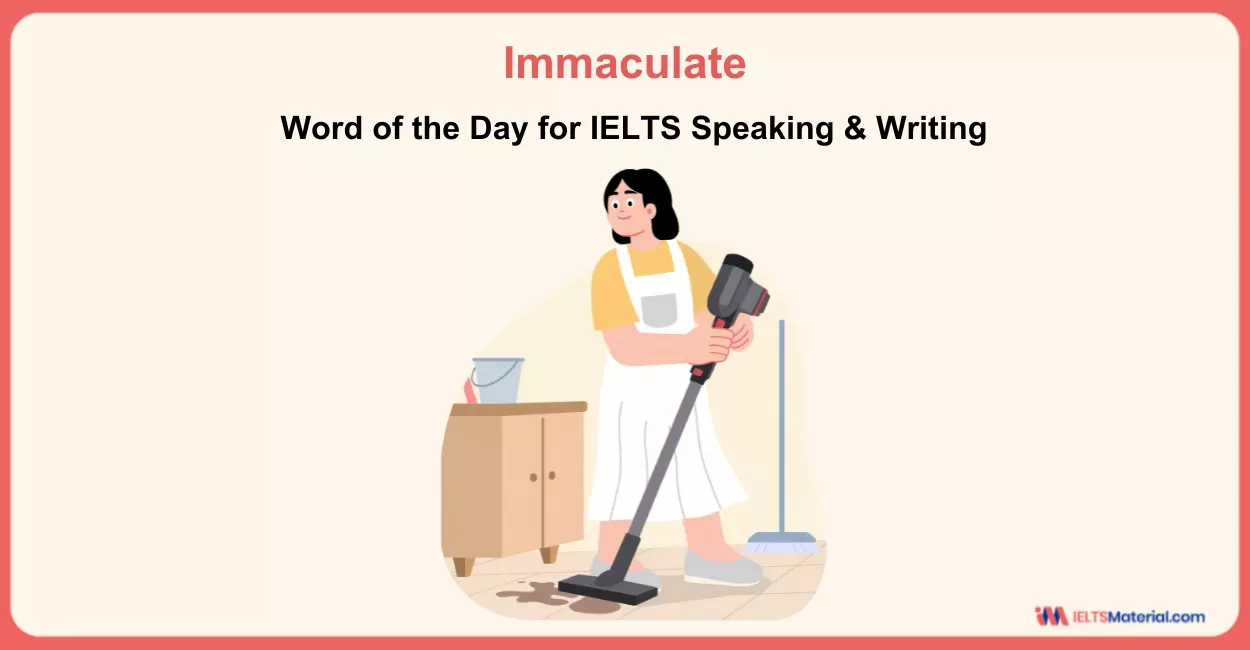
Haniya Yashfeen
Recent Articles

Kasturika Samanta
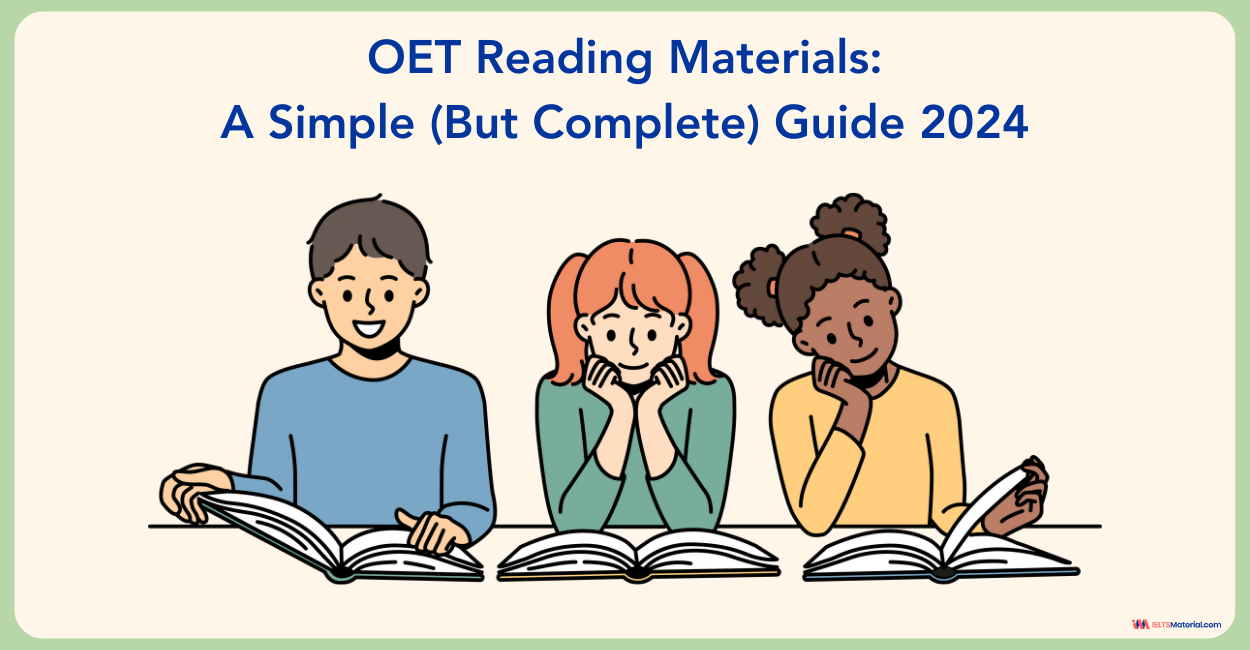
Haniya Yashfeen
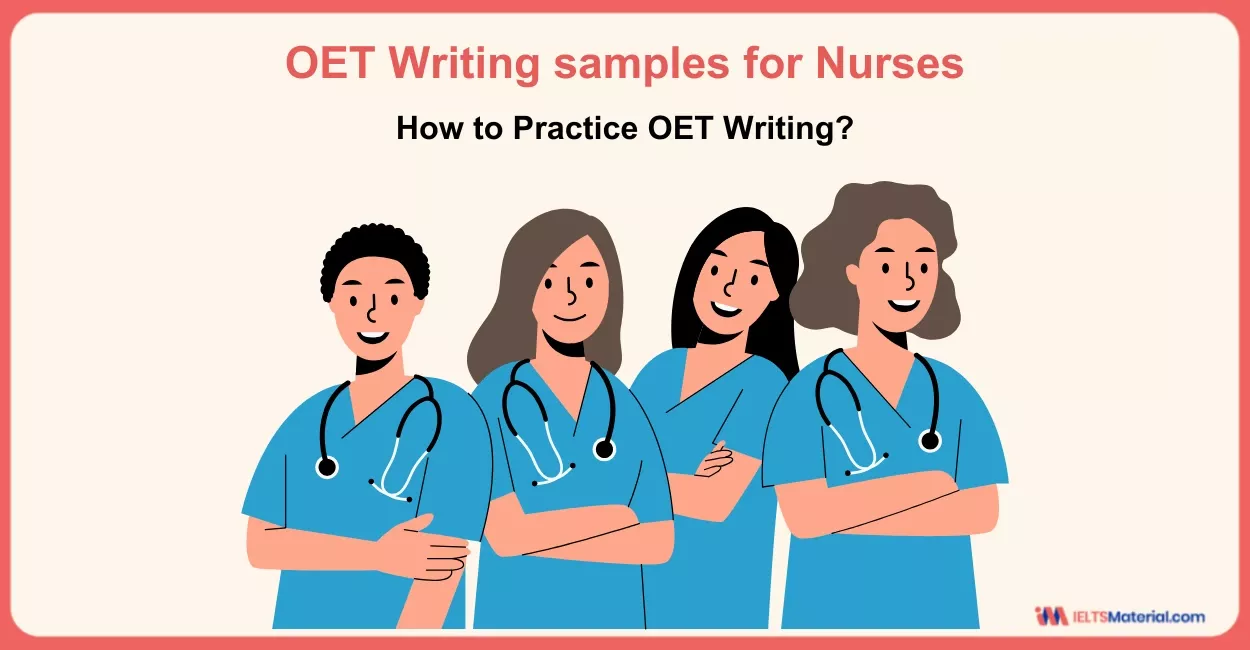
Kasturika Samanta
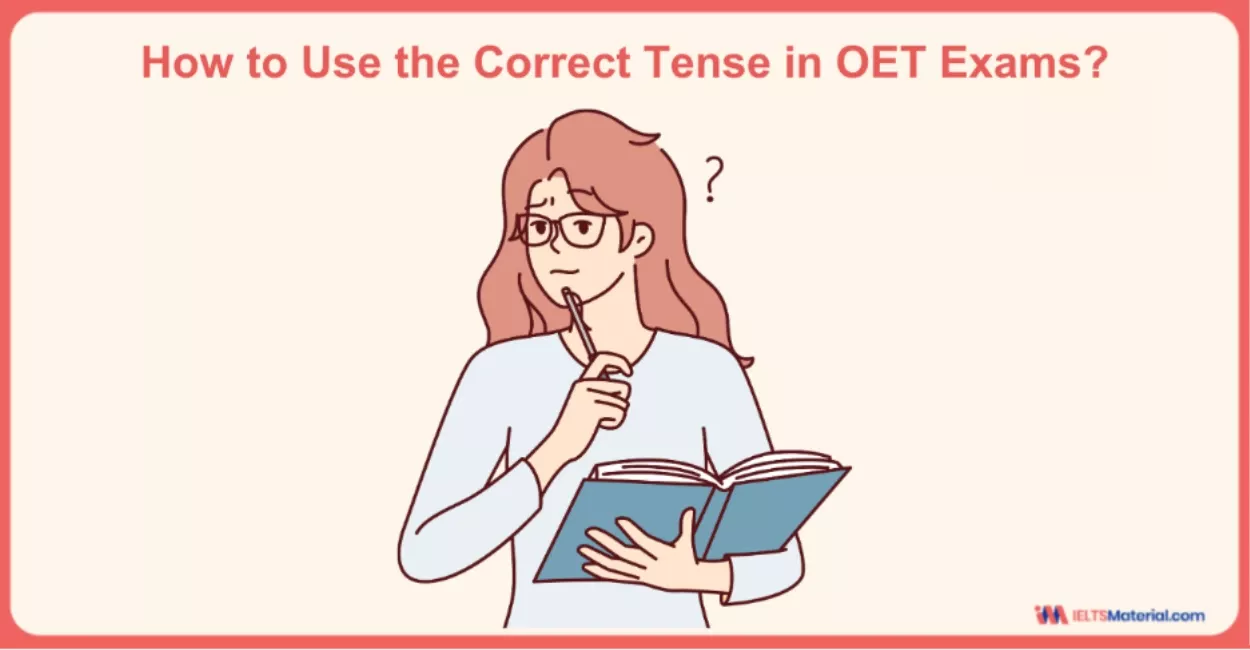

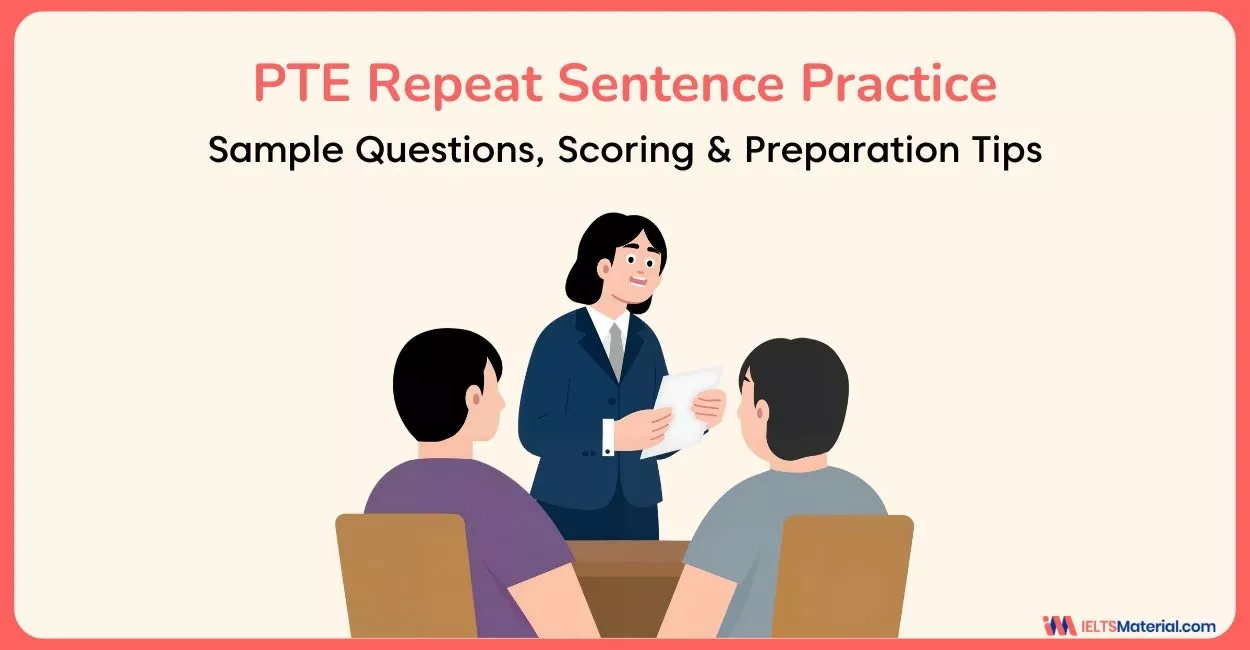
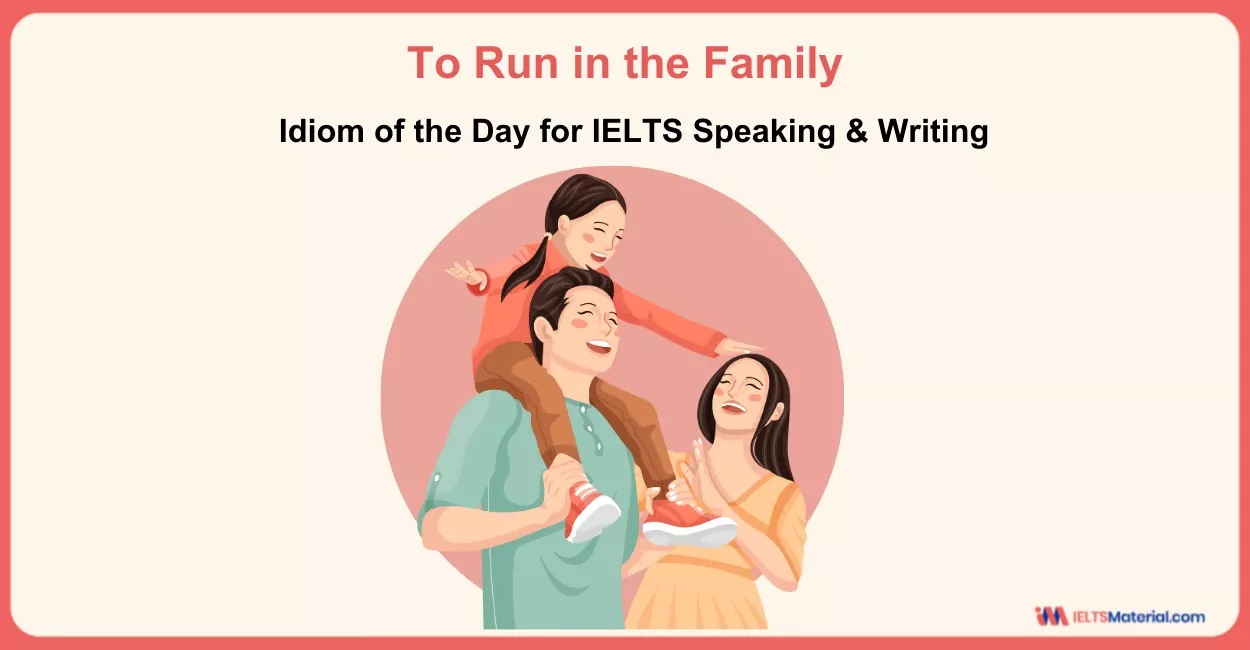



Post your Comments